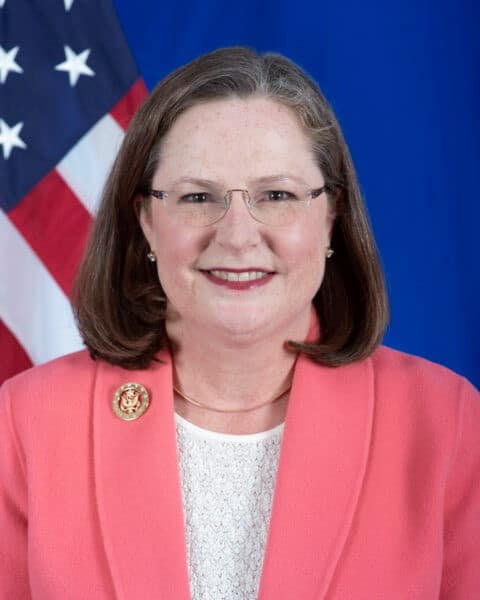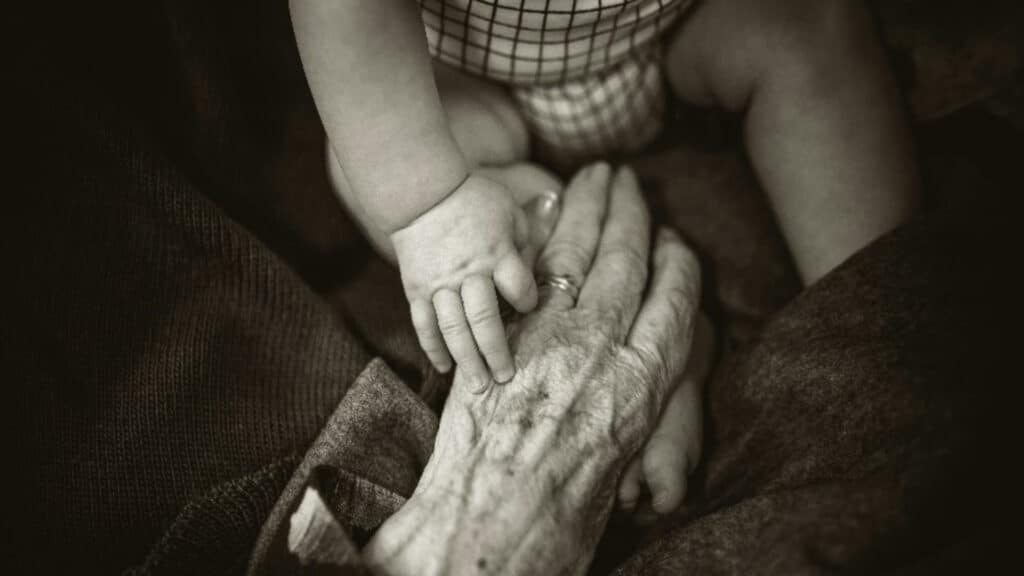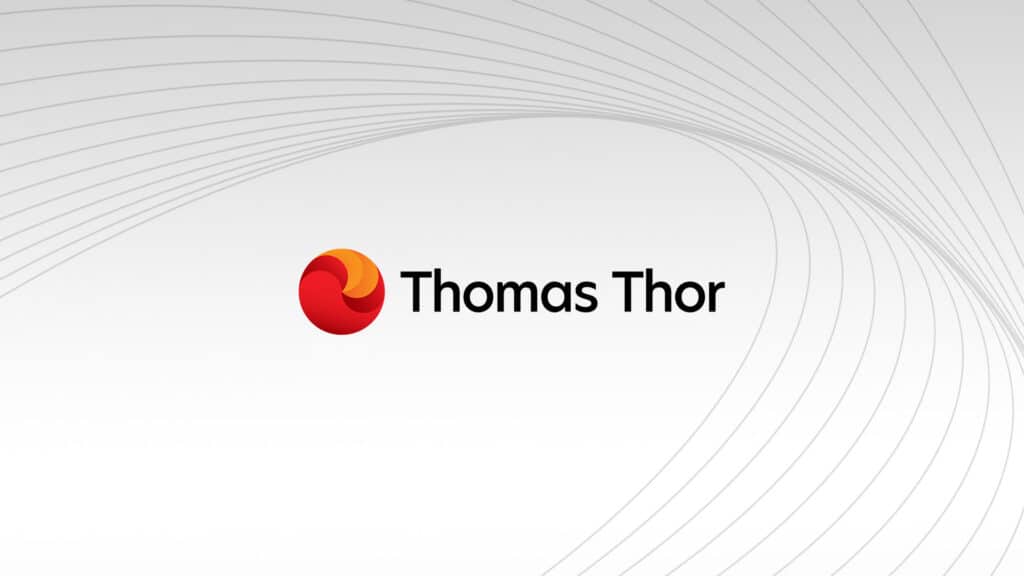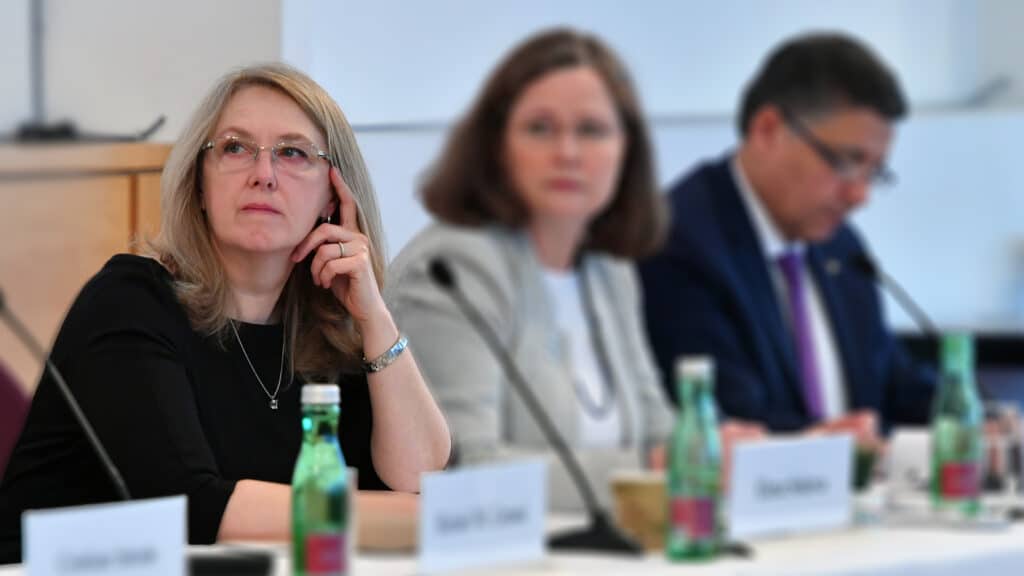Interview with Laura Holgate, United States Ambassador to the International Organizations in Vienna

By Susan Cohen
What unique challenges does your work as US Ambassador to the IAEA present? How does the US support the UN’s sustainable development goals? How does the USA facilitate the IAEA’s promotion of the peaceful use of nuclear energy worldwide?
Ambassador Laura Holgate, US Ambassador to the International Organizations in Vienna, can answer these questions. Susan Cohen asks her about the US’ contribution to the work of the IAEA.
Susan Cohen: How do your education and professional background contribute to your current work?
Ambassador Laura Holgate: My academic training was in political science, focusing on international relations, causes of war, history of arms control, and terrorism. I specialized in weapons of mass destruction for my Master’s degree, and went on to do research at the Harvard Kennedy School’s Belfer Center for Science and International affairs, publishing numerous papers on arms control, non-proliferation, threat reduction, and related topics. Before coming to Vienna, I worked mainly in bilateral relations. My first taste of multilateral work with the IAEA was with the Nuclear Threat Initiative, an NGO, in 2001–2002.
SC: What directly led to your taking on the ambassadorship in Vienna?
LH: I was supported by people I’d known, admired and worked with — Tony Blinken and others in President Biden’s national security team — to take up the position and continue the work I’d started as ambassador six years before. Before that, from 2002, as leader of the Nuclear Security Summit process at the White House, I’d been back and forth to Vienna many times for meetings with the IAEA.
SC: What is the main focus of your work with the IAEA at present?
LH: It covers safety, security and safeguards and also promoting the use of advanced nuclear reactors and small modular reactors (SMRs) and the peaceful uses of nuclear technology beyond nuclear energy.
SC: How does nuclear energy contribute to the sustainable development goals (SDGs)?
LH: The IAEA supports all 17 SDGs. Nuclear energy itself is an important factor in decarbonizing the energy sector. Other non-power nuclear applications help to mitigate poverty, eliminate hunger, and provide clean water, affordable and clean energy, economic growth and industrial innovation. The IAEA is active in diagnosing and treating cancer, developing disease- and drought-resistant crops, and eliminating animal diseases using nuclear technology — by conducting research, and deploying technology and building capacity in Member States.
SC: Please describe an IAEA nuclear power project of special interest to you.
LH: We support the deployment of advanced reactors and SMRs to foster energy security and climate management. The IAEA’s SMR Platform includes not only nuclear energy but also safeguards, safety and security, enabling Member States to access the full range of IAEA services to procure, operate, regulate, and decommission SMRs. An interesting challenge is the application of IAEA safeguards, as SMRs move from the producing State to the user State. Another new project is the Nuclear Standardization and Harmonization Initiative, established to help the nuclear regulatory community control these novel reactors without compromising safety, integrity or sovereignty. Regulators work with industry to facilitate the licensing process and share best practices.
SC: Does the US support any non-power projects involving nuclear applications?
LH: Yes, many. One is the Rays of Hope Initiative, bringing nuclear technology for cancer diagnosis and treatment to developing countries. Another is NUTEC Plastics, using nuclear technology to reduce plastic pollution, treating plastic waste to cut recycling costs and monitoring plastic pollution in the marine environment. With other Member States, the USA provides extrabudgetary contributions through the Peaceful Uses Initiative to fund these IAEA activities, which include nuclear applications, technical cooperation, safety and security.
SC: Where can US’ expertise and experience best contribute to the IAEA’s work in nuclear safety and security?
LH: Nuclear safety and security are essential as we see nuclear energy use expanding as a contributor to clean energy in the future. The US is by far the largest cash donor to the IAEA’s safety and security projects and also provides expertise to support training and development of legal instruments, particularly for nuclear security. Moreover, I was the godmother of the Vienna-based World Institute of Nuclear Security (WINS), which brings together nuclear security specialists, nuclear industry leaders, governments, and international organizations to share knowledge and promote best security practices.
SC: What is your greatest personal challenge, working in nuclear diplomacy today?
LH: I see two essential challenges in nuclear diplomacy, relating to two global trends: 1) the rising pressure on the international rules-based order, and 2) the accelerating rate of technological advancement.
In the nuclear context, this first trend manifests itself in Russia’s and China’s attacks – for different reasons but often working together – on foundational elements of Vienna-based international organizations. For the past decade, Russia has been seeking to weaken the authority of the IAEA’s work on safeguards and security. In the wake of its full-scale invasion of Ukraine, attacks on Ukrainian nuclear facilities, and theft of the Zaporizhzhya Nuclear Power Plant, Russia has become even more combative and critical of the IAEA. Similarly, China has been increasingly critical of the IAEA, its Director General, and the Secretariat in statements in the Board of Governors and the General Conference, reflecting Beijing’s strong objections to Australia–United Kingdom–United States cooperation on nuclear powered submarines, known as AUKUS. This antagonism escalated to a strong attack on the IAEA’s 2023 budget. Both Russia and China have also objected to inclusion of certain non-government organizations in the work of Vienna-based international organizations and have blocked decisions and required Member States to vote on provisions that historically have been passed by consensus. While the vaunted ‘Spirit of Vienna’ has been under pressure for years, the current circumstances are much more difficult to manage.
The second trend – the accelerating rate of technological change – is also very present in the nuclear realm, and Vienna-based diplomats must increasingly engage on topics such as artificial intelligence, quantum computing, unmanned aerial vehicles, advanced nuclear reactors, novel uses of space, nuclear technologies that contribute to sustainable development, updated safeguards techniques, and many more. Broadening our recruitment base to bring more people with technical backgrounds into the diplomacy realm will be key to future success in adapting multilateral mechanisms to these technical advancements.
SC: What are your plans for the near future?
LH: While managing these challenges will continue to require significant attention, I hope to make progress in 2023 on two key areas: advanced nuclear reactors and nuclear technologies in support of sustainable development. I am also committed to raising awareness among development stakeholders about the contributions of the IAEA and other Vienna-based organizations to meeting the UN’s SDGs, working through vehicles such as the Sustained Dialogue on Peaceful Uses and the Peaceful Uses Initiative.
Share this article
Related articles
Help us grow and achieve your potential at a values-driven business.




